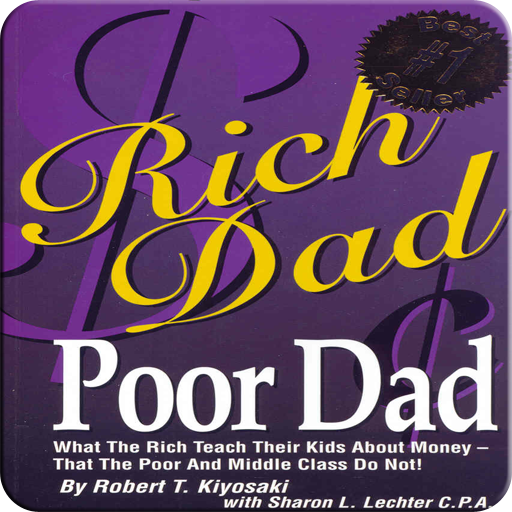(单词翻译:单击)
“If it’s that simple, how come everyone is not rich?” I asked.
“既然很简单,那为什么不是每个人都发财呢?”我问。
Rich dad smiled. “Because people do not know the difference between an asset and a liability.”
富爸爸笑了,他说:“因为人们并不明白资产和负债的区别。”
I remember asking, “How could adults be so silly? If it is that simple, if it is that important, why would everyone not wanna find out?”
我记得我又问:“大人怎么会这么笨,如果这个道理很简单,而且很重要,为什么不把它弄明白呢?”
It took our rich dad only a few minutes to explain what assets and liabilities were.
于是富爸爸又花了几分钟向我们解释什么是资产和负债。

The Income Statement, often called a Profit-and-Loss Statement measures income and expenses: money in or and money out. The second set of boxes is a Balance Sheet. It’s called that because it’s supposed to balance assets against liabilities. That relationship is vital to understand.
收益表,它常被用来衡量收入和支出以及金钱流动方向的情况。下图中下半部分的表格是资产负债表,它被用来说明资产与负债的情况。理解这种关系很重要。
If you want to be rich, simply spend your life buying assets. If you want to be poor or middle class, spend your life buying liabilities.
如果你想致富,只需不断买入资产就行了;如果你只想当穷人或是中产阶级,只要不断地买入负债。
In 80 percent of most families, the financial story is a story of working hard and enough to get ahead.
80%的家庭的财务报表表现的是一幅拼命工作、努力争先的图景。
Examples such as these are obviously oversimplified. Everyone has living expenses, the need for food, shelter, and clothing. The diagrams rich dad drew show the flow of cash through a poor, middle-class, or wealthy person’s life. It's the cash flow that tells the story. It's the story of how a person handles their money. What they do after they get the money in their hand.
很显然,所有这些例子都经过了简化,只表现人们最基本的吃、穿、住、用。富爸爸画的这些图表显示了穷人、中产阶级和富人一生的现金流。正是现金流说明了问题,即一个人怎样处理他的钱,当他有了钱后会怎么做。
I cringe whenever I hear people ask me how to get rich quicker, or how do they start. I often hear, “I'm in debt, so I need to make more money.”
这也是为什么当我听到人们问我他们怎样才能快速致富,或是他们应当从哪儿开始时,我感到不快的原因。我也常听人说:“我欠了债,所以我必须挣钱。”
But more money will often not solve the problem. Money often makes obvious our tragic human flaws. Money often puts the spotlight on what we do not know. That's why, all too often, a person who comes into a sudden windfall of cash—let’s say an inheritance, a pay raise, or lottery winnings—soon returns to the same financial mess, if not worse, than the mess they were in before they recieve the money. Money only accentuates the cash-flow pattern running in your head. If your pattern is to spend everything you get, most likely an increase in cash will just result in an increase in spending. Thus, the saying, “A fool and his money is one big party.”
但有更多的钱往往不能解决问题。钱往往能暴露人性中那些可悲的弱点,并凸显人们的无知。这就是为什么经常有一些人在忽然得到一大笔意外之财,比如遗产、加薪或买彩票中大奖之后,不久又陷入财务困境的原因——即便他们的财务状况会比之前好一些。钱只会让你头脑中的现金流的模式更加明显,如果你的模式是把收入都花掉,那么最可能的结果是在增加收入的同时也增加支出。正所谓,“蠢人用蠢钱”。


